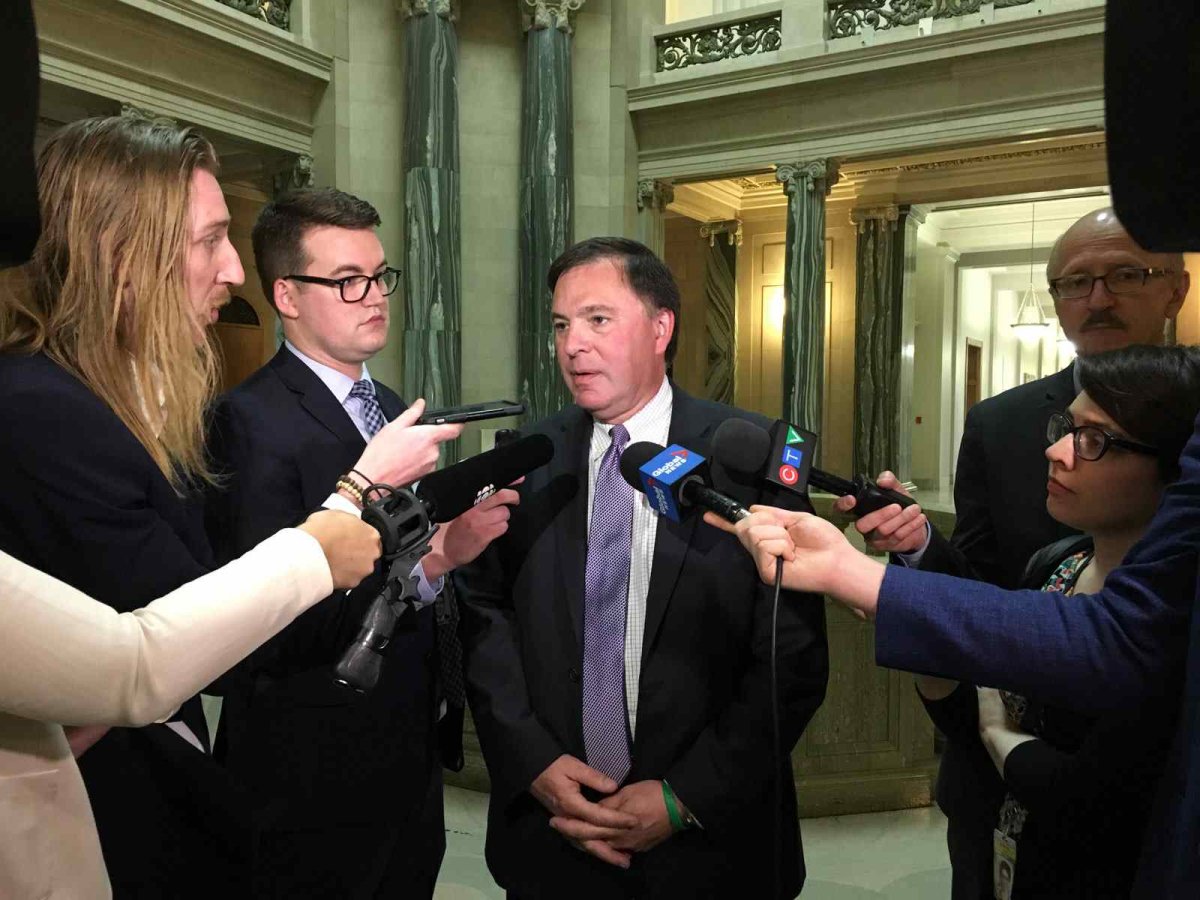The Saskatchewan government has now had two meetings with a group of ’60s Scoop survivors about working toward an official apology. A change from previous meetings that involved the province, Federation of Sovereign Indigenous Nations (FSIN), and Metis Nation-Saskatchewan (MNS).

“We’ve let the survivors group determine who is going to be representing the survivors at the table that we’re having the conversations with. If they’re engaging the Metis Nation, if they’re engaging the FSIN, we’ll leave that to them,” deputy premier Gordon Wyant said.
The group, known as Sixty Scoop Indigenous Survivors Sask. (SSISS), is in the process of sharing their stories with the province. SSISS is made up of First Nations, Metis and non-status ‘60s Scoop survivors from across the province.
READ MORE: Sask. ’60s Scoop survivors call on the need for healing programs in addition to apology
The ‘60s Scoop refers to a government policy that saw many Indigenous and Metis children be removed from their home communities and be adopted by primarily white families across Canada and into the United States.
SSISS so-chair Robert Ducette, who is a former MNS president, said they don’t want to put a hard deadline on when the apology will take place.
“I think to put a time frame on it wouldn’t be a good thing. We’re working together and we’re moving together,” Doucette said.
Doucette said that the SSISS has not brought up compensation, as a case concerning a settlement for Metis survivors is currently before the courts.
Compensation became a sticking point in apology negotiations between the province and FSIN last November. Chief Bobby Cameron floated the idea of a $400 million settlement for scoop survivors as a negotiating starting point.
“We’ll maintain the course and support those survivors who want an apology and we’ll support those survivors who want an apology with compensation,” Cameron said.
“There are different paths on the healing journey, and as the FSIN represents 74 First Nations, it’s our obligation to support those with the path they’re undertaking.”
Despite former premier Brad Wall and current Premier Scott Moe saying there will be no compensation with the official apology, Cameron said he is still optimistic that compensation will come someday.
READ MORE: ’60s Scoop settlement worth $875M approved by federal judge after Saskatoon hearings
Global News has reached out to the Metis Nation of Saskatchewan for comment.
While the official apology won’t fix generational trauma experienced by the scoop survivors, Doucette said it is an important step forward.
“It’s not going to fix generational trauma and the apology is going to be different for each person,” Every person has a different story and a different motivation with respect to the apology,” Ducette said.
READ MORE: ‘We are sorry:’ Alberta premier formally apologizes to ’60s Scoop survivors
“Just using myself for an example, I would like to hear an apology just to know that what the government did was wrong and we didn’t do anything wrong as First Nations and Metis people. We didn’t do anything wrong. It was just a bad policy decision on the part of the government and that they take ownership of what they did and try to move forward in the right direction.”
A step Cameron would like to see happen in the road to “true reconciliation” is allowing more Indigenous children who enter provincial care remain in their home communities, and have the First Nations retain jurisdiction over their children
“We have the solutions. We have the ability, the capability and qualified people who will better take and better serve our First Nations children,” Cameron said.
“Uprooting First Nations children, putting them in a home where they’re not comfortable or their self-confidence depletes is not a good thing.”




Comments